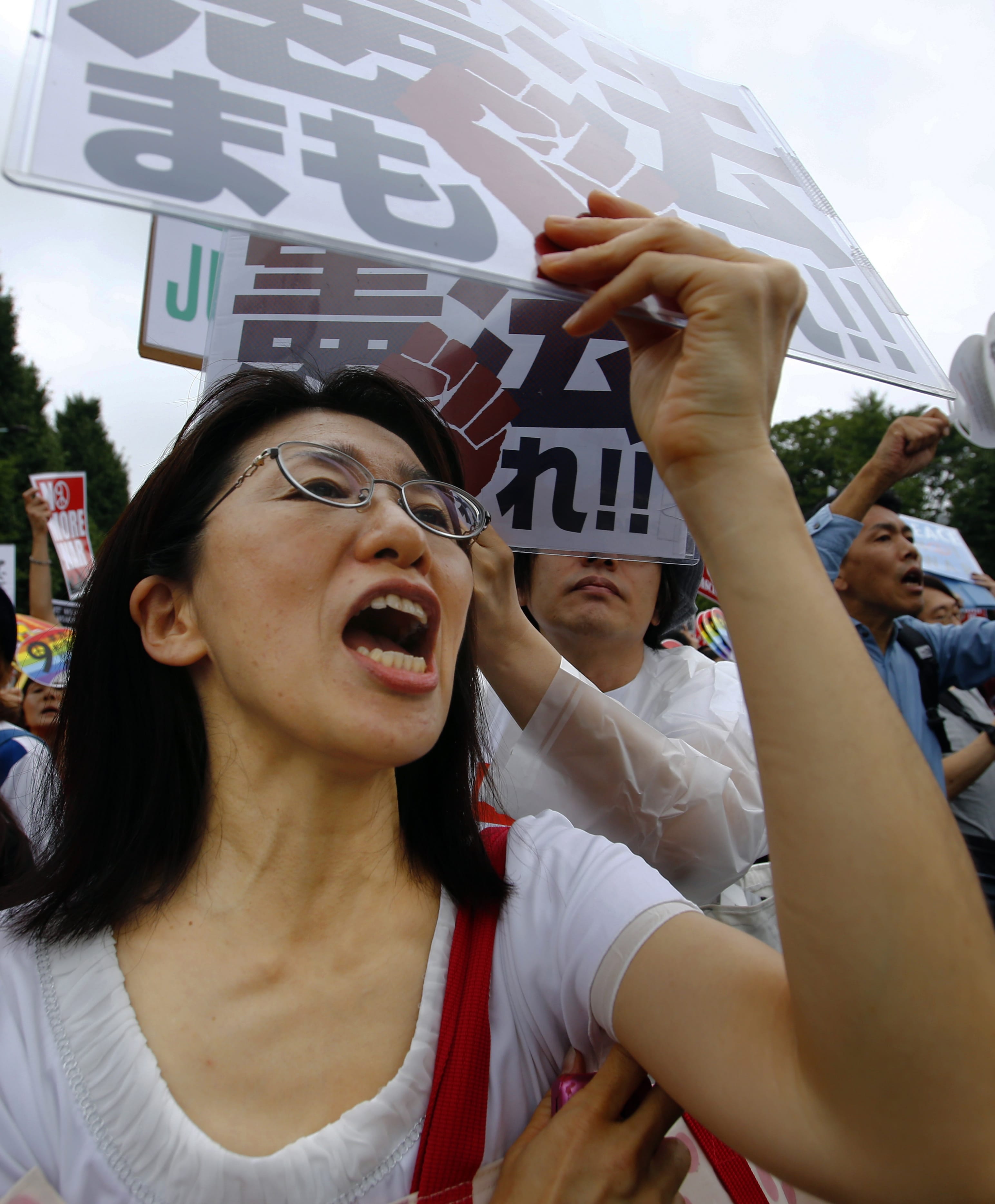TOKYO — Mothers holding their children’s hands stood in the sprinkling rain, some carrying anti-war placards, while students chanted slogans to the beat of a drum against Prime Minister Shinzo Abe and his defense policies.
Japan is seeing new faces join the ranks of protesters typically made up of labor union members and graying leftist activists. Tens of thousands filled the streets outside Tokyo’s parliament on Sunday to rally against security legislation expected to pass in September.
“No to war legislation!” “Scrap the bills now!” and “Abe, quit!” they chanted in one of the biggest protests in recent memory. The bills would expand Japan’s military role under a reinterpretation of the country’s war-renouncing constitution.
In Japan, where people generally don’t express political views in public, such rallies have largely diminished since often-violent student protests in the 1960s.
The 2011 Fukushima nuclear plant disaster, however, prompted a spurt of anti-nuclear protests that brought mothers out of their homes. Now at least some seem to be shifting their focus to the security debate.
The demonstrations started earlier this year and grew sharply after July, when Abe’s ruling coalition pushed the legislation through the more powerful lower house despite polls showing a majority of Japanese were opposed.
Whether the protests signal wider social change remains to be seen. The anti-nuclear protests have faded somewhat, and these could too, once the summer holiday is over and the legislation passes, as expected.
But grass-roots movements among typically apolitical groups such as mothers and students — aided by social media — appear to be growing.
A group called Mothers Against War started in July and gained supporters rapidly via Facebook. It collected nearly 20,000 signatures of people opposed to the legislation which representatives tried unsuccessfully to submit to Abe’s office on Thursday.
Etsuko Matsuda, a member of the group, said she has seen too many things going in the wrong direction, including the recent return to nuclear power in post-Fukushima Japan.
“I think there are a growing number of people like me who realized our lives have only turned worse under Abe’s government,” said the 40-year-old mother of two from Sendai city in northern Japan. “I hope more people will be interested in politics and speak up.”
The security bills would permit the military to engage in combat for the first time since World War II in cases of “collective defense,” when Japan’s allies such as the U.S. are attacked, but Japan itself is not.
Abe’s government argues that the changes are needed for Japan to respond to a harsher security environment, including a more assertive China and growing terrorist threats, and to fulfill expectations that it will contribute more to global peacekeeping.
The topic has become almost a regular item in women’s magazines, traditionally known more for covering entertainment, beauty, health, food and the Imperial family.
Takashi Watanabe, a deputy editor-in-chief of Shukan Josei (Ladies Weekly), said there has been a growing appetite for social issues among readers, especially since Fukushima.
“Our readers seem to be particularly worried about a possibility that their children or grandchildren might be embroiled in war in one way or the other because of the legislation,” he said. “As mothers, women perhaps have a stronger sense of crisis than men.”
The magazine often receives inquiries by mail or phone about the legislation, sometimes even asking for anti-war rally details, he said.
The presence of college students in the protests, including a group known as SEALDs, or Students Emergency Action for Liberal Democracy, has also captured media attention this summer.



